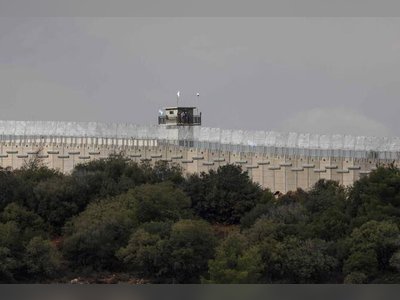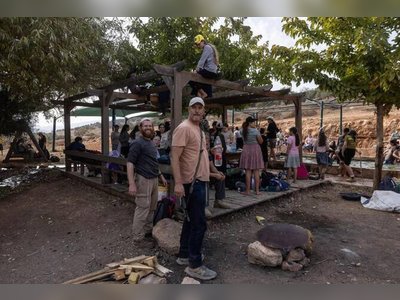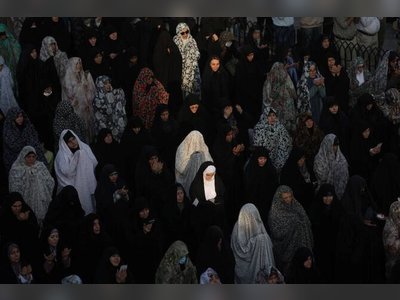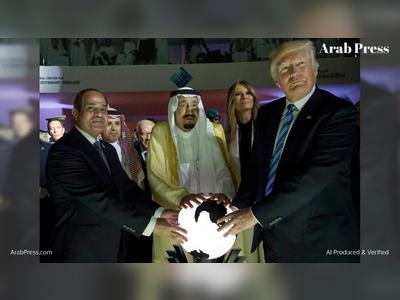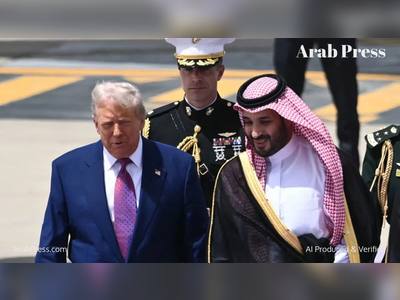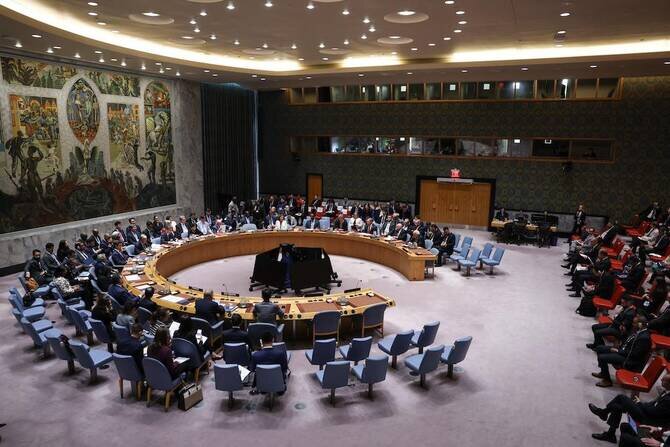
Israeli Leaders Maintain Opposition to Palestinian State Before UN Security Council Vote
Prime Minister Benjamin Netanyahu and his government express strong opposition to a Palestinian state ahead of the UN's endorsement of a US-backed Gaza peace plan.
Jerusalem: Israeli Prime Minister Benjamin Netanyahu and members of his cabinet have emphasized their staunch opposition to a Palestinian state as the UN Security Council prepares to vote on a resolution endorsing a US-backed Gaza peace plan.
The latest draft of the resolution, which differs from previous versions, includes mention of a possible future Palestinian state, a proposal that the Israeli government vehemently rejects.The resolution, set to be voted on Monday, aims to implement the ceasefire agreement brokered by US President Donald Trump between Israel and Hamas.
It envisions the establishment of a transitional administration and a temporary international security force in Gaza, which has been devastated by conflict.
Netanyahu, during a cabinet meeting on Sunday, reaffirmed the government's stance, stating that its opposition to a Palestinian state on any territory remains unchanged.This stand comes amid criticism from coalition members, including the far-right Finance Minister Bezalel Smotrich, who has accused Netanyahu of not adequately responding to recent Western recognition of Palestinian statehood.
Smotrich called for an immediate and decisive response from Netanyahu, aiming to assert that no Palestinian state will emerge on Israel's lands.
In response, Netanyahu stated that he requires neither affirmations, tweets, nor lectures from anyone.Other ministers have also voiced their opposition to the idea of a Palestinian state, with Defense Minister Israel Katz emphasizing that Israel’s policy is clear: it will not permit the establishment of a Palestinian state.
Foreign Minister Gideon Saar echoed this sentiment, stating that the country will not agree to the creation of a Palestinian terror state within the heart of Israel.
National Security Minister Itamar Ben Gvir went further, describing the Palestinian identity as an 'invention'.The UN Security Council resolution is seen as marking the second phase of the US-backed deal reached following the ceasefire after two years of war triggered by Hamas's October 7, 2023, attack on Israel.
The first phase has involved the release of Israeli hostages and the liberation of Palestinian prisoners, reflecting a significant exchange of captives held by both sides.The Israeli government’s firm stance against the establishment of a Palestinian state ahead of the UN vote reflects its continued skepticism regarding the recognition of Palestine as a sovereign nation.
The latest draft of the resolution, which differs from previous versions, includes mention of a possible future Palestinian state, a proposal that the Israeli government vehemently rejects.The resolution, set to be voted on Monday, aims to implement the ceasefire agreement brokered by US President Donald Trump between Israel and Hamas.
It envisions the establishment of a transitional administration and a temporary international security force in Gaza, which has been devastated by conflict.
Netanyahu, during a cabinet meeting on Sunday, reaffirmed the government's stance, stating that its opposition to a Palestinian state on any territory remains unchanged.This stand comes amid criticism from coalition members, including the far-right Finance Minister Bezalel Smotrich, who has accused Netanyahu of not adequately responding to recent Western recognition of Palestinian statehood.
Smotrich called for an immediate and decisive response from Netanyahu, aiming to assert that no Palestinian state will emerge on Israel's lands.
In response, Netanyahu stated that he requires neither affirmations, tweets, nor lectures from anyone.Other ministers have also voiced their opposition to the idea of a Palestinian state, with Defense Minister Israel Katz emphasizing that Israel’s policy is clear: it will not permit the establishment of a Palestinian state.
Foreign Minister Gideon Saar echoed this sentiment, stating that the country will not agree to the creation of a Palestinian terror state within the heart of Israel.
National Security Minister Itamar Ben Gvir went further, describing the Palestinian identity as an 'invention'.The UN Security Council resolution is seen as marking the second phase of the US-backed deal reached following the ceasefire after two years of war triggered by Hamas's October 7, 2023, attack on Israel.
The first phase has involved the release of Israeli hostages and the liberation of Palestinian prisoners, reflecting a significant exchange of captives held by both sides.The Israeli government’s firm stance against the establishment of a Palestinian state ahead of the UN vote reflects its continued skepticism regarding the recognition of Palestine as a sovereign nation.
